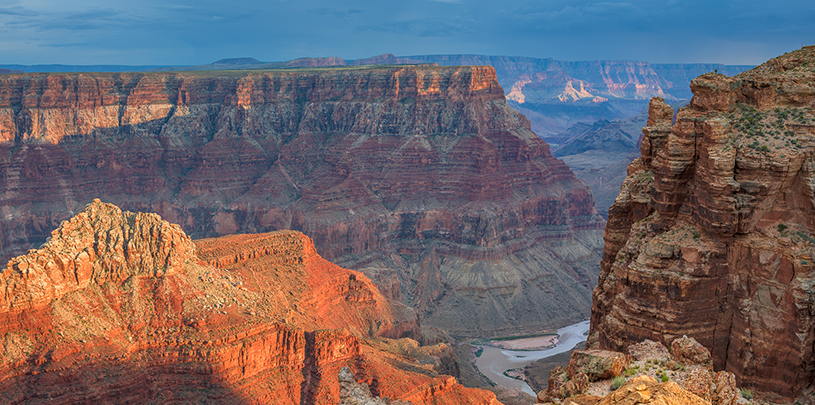
 by Roger Clark, Grand Canyon Director
by Roger Clark, Grand Canyon Director
On Monday, October 12, Arizona Congressman Raúl Grijalva and tribal leaders introduced the Greater Grand Canyon Heritage National Monument Act. It was written in collaboration with Havasupai, Hualapai, and Hopi leaders. The Navajo Nation, which banned all uranium mining on its land in 2005, joined in support along with Zuni, Paiute, and Yavapai leaders. Read a summary of the bill here.
All 1.7 million acres are already public land, but designating them as a national monument would provide key protections.
There’s very little chance that the legislation will gain approval in today’s gridlocked Congress. But President Obama can proclaim the national monument under his existing legal authority.
Ask President Obama to protect the Grand Canyon’s sacred waters from uranium mining.
1. Grand Canyon springs are being permanently polluted by uranium mining.
Contaminated water from an abandoned uranium mine on the canyon’s south rim is poisoning a spring-fed creek deep within the canyon. Another mine on the North Rim was re-opened in 2009, with more than two million gallons of highly contaminated groundwater discovered in its deep shaft. Water samples taken by the U.S. Geological Survey show that 15 springs and five wells within the Grand Canyon’s watershed contained dissolved uranium concentrations “related to mining processes” in excess of standards for safe drinking water. The National Park Service reports that the “regional aquifer groundwater wells at the Canyon, Pinenut, and Hermit [uranium] mines as well as the sumps at the base of Pigeon and Hermit mines have all exhibited dissolved uranium concentrations in excess of drinking water standards (30 micrograms per liter), with sump concentrations at Hermit Mine exceeding 36,000 micrograms per liter.”
2. Grand Canyon-associated tribes and a broad coalition of citizens want to protect Grand Canyon’s springs and sacred waters from uranium pollution.
In 2012, Secretary of the Interior Ken Salazar ordered a 20-year ban on thousands of new uranium claims on public lands that surround the canyon. This hard-won halt on new uranium claims took more than five years and one of the broadest coalitions ever aligned to protect the Grand Canyon. Havasupai villagers, whose sole source of drinking water is at risk, led the way. They were joined by ten other tribal communities, county supervisors, chambers of commerce, ranchers, hunters, scientists, Arizona’s governor, game and fish commissioners, and business owners. All united to stop uranium mining from permanently polluting the Grand Canyon and undermining the region’s tourism-driven economy.
3. The Grand Canyon needs your help to make the current 20-year ban on new uranium claims permanent.
The National Mining Association and Nuclear Energy Institute are suing to block the ban in federal court. International uranium prices are once again rising. The moratorium on new claims is temporary. We need to make it permanent, and there’s no reason to wait – President Obama can protect it with the stroke of a pen—now!
"The Grand Canyon Trust supports Congressman Grijalva’s proposal to permanently protect the Grand Canyon from uranium mining. We also support protection of the rich cultural and natural heritage of the Grand Canyon affiliated tribes who helped develop this legislation. As the proposed monument’s largest public land grazing permittee, we understand that the bill will not change laws that govern existing uses including hunting, grazing, and recreation. This proposal offers a valuable opportunity for constructive public dialogue about the value of conservation across the Greater Grand Canyon region.”
Comments (30)
Leave A Comment